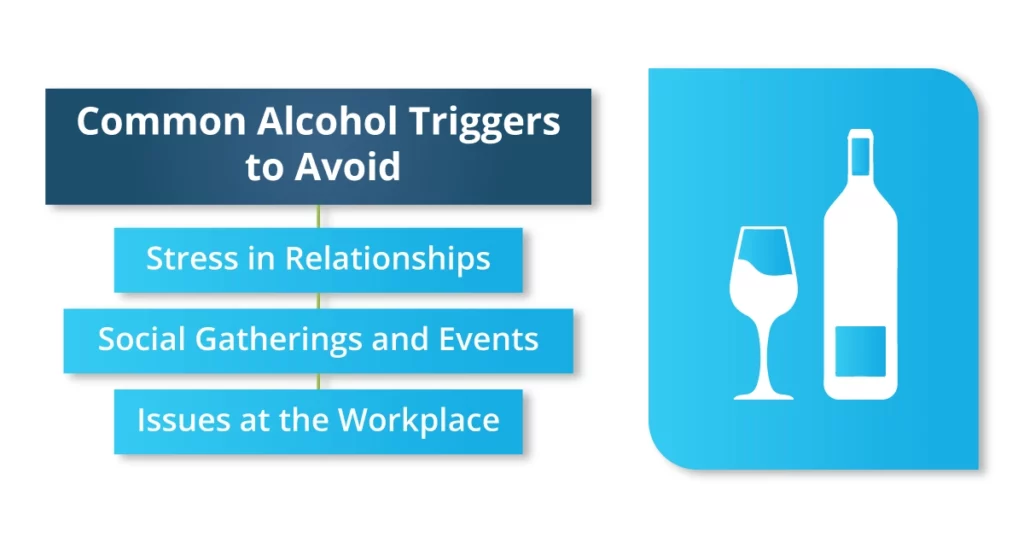
The social aspect of drinking is widely understood, as is its use as a stress reliever. It might potentially be a treatment for anxiety or sleeplessness day by day.
However, drinking generally accomplishes nothing to alleviate these worries over the long term. There are also some substantial drawbacks.
As a result, you might consider whether a break is necessary. You’re not alone, either. With the #SoberCurious movement and month-long sobriety challenges, more and more individuals are examining the part alcohol plays in their lives.
Whether you want to make adjustments or take a lengthy break, these tips will help you develop a plan that works for you.
Examine The Impacts Alcohol Has on Your Health
There are various ways that alcohol use disorders can harm your health. Even a small amount of alcohol might make you sleepy, disoriented, or hungover. Drinking more increases your likelihood of noticing other adverse health impacts on heavy drinkers, such as:
- Sleep disruption intestinal problems
- Memory issues
- Increased sadness, agitation, and anxiety
- Conflicts and other disputes with family members
- These consequences may start to compound over time
Consider Your Drinking Habits
Knowing why you’re doing something is a crucial first step in learning how to stop. Take the time to your drinking habits and overall feeling towards alcohol.
A “quick drink” frequently develops into three or four. When you’re having fun, it’s difficult to stop, especially when you’re around pals who are also enjoying themselves.
Your worries may be more about why you drink than how much. Many people use alcohol problems to improve their emotions or cope with difficult situations. Drinking to ease tension before a challenging conversation or a first date is typical.
You might consider whether drinking keeps you from developing more effective coping mechanisms for your emotions.
Disease control continues by saying that understanding the causes of your drinking can aid your search for more effective solutions. Some typical alcohol triggers are:
- Stress in relationships, social gatherings
- Working problems and insomnia
- You can make plans to help manage the impulse to drink by becoming more aware of your alcohol triggers and motivations
Think About Your Strategy
You might be aware of your desire to stop drinking altogether. However, you might be unsure of quitting entirely and unwilling to attach yourself to that objective.
That’s OK. The most crucial thing is to examine your drinking patterns and find a technique to reduce them that works for you. Without complete abstinence, it is still possible to improve one’s relationship with alcohol and make more thoughtful, knowledgeable drinking decisions.
Management of Moderation
One alternative to complete sobriety is the strategy Turner uses, known as moderation management. Finding the appropriate plan for your condition is stressful since it focuses on lowering alcohol consumption and the possible problems that come with it.
Complete abstinence from alcohol is a good goal, but it doesn’t have to be the only one. Uncertain of your ultimate objective? It’s OK. Remember that you have options. Always be honest with your healthcare provider and check with them if you are unsure what is safe after recovering.
Involve Your Loved Ones
When you stop drinking, your family and friends can encourage and support you. Sharing your experiences with alcohol could inspire others to examine their drinking patterns.
Perhaps your spouse, sibling, or roommate is also contemplating a change. By quitting drinking, you can support each other while increasing your drive and accountability.
Urner emphasizes the value of bringing a dependable support person when going to gatherings where alcohol will be served. When you’re not by yourself, it’s frequently simpler to decline a drink.
Know What to Say
People may query you as to why you decline a drink.
You’re not required to provide specifics. However, it might be advantageous to have the following response ready:
- “I’m reducing my spending for my health.”
- I wouldn’t say I like how drinking makes me feel.
Having stated that, in some places, all you need to say is, “No, thanks.” By practicing your refusal beforehand, you might feel more at ease and assured when you find yourself in an alcohol-related scenario.
Alter Your Surroundings as Needed
Drinking can become instinctive when alcohol is a regular part of your routine, especially when you’re anxious or overwhelmed.
It’s wise for an individual recovering from a drinking problem to make a few environmental adjustments to prevent alcohol triggers that can significantly impact their ability to stop drinking. You may not need to rebuild your life to succeed entirely.
The National Institutes of Health (NIH) reported that 15.1 million Americans, or 6.2% of adults, used alcohol in 2015. The National Institute on Alcohol Abuse and Alcoholism (NIAAA) promotes and carries out studies on how alcohol usage affects people’s health and well-being.
Prepare for Alcohol Detox
When they dramatically reduce or quit drinking, people highly reliant on alcohol may begin to suffer what is known as alcohol detox. This occurs as your body starts to flush much alcohol from your system. Alcohol withdrawal symptoms, such as: can be brought on by detox.
- Anxiety
- Tremors
- Sweats
- Mood changes
- Sleeplessness
- fatigue
- Headache
If you’re worried that you might encounter symptoms of alcohol withdrawal after you stop drinking problem or cut back, speak with a healthcare provider. You may devise a strategy to get through it together.
Schedule Time for Self Care
Giving up alcohol can be very tough. Alcohol can be used to treat mental distress, but the additional stress might increase the temptation to drink, making achievement seem even more improbable.
Making significant changes can be challenging, but strong self-care habits can help you deal with overwhelming emotions and look after your body and mind.
Comprehend Your Motivation
Along the process, you can come into challenges that make you want to drink. Remember why you chose to cut back or stop the drinking problem. Think about putting goals in writing and keeping notes handy so that you have a tangible reminder to refer to when you need it to assist and push you to stick with it.
Frequently Asked Questions (FAQs)
How do I motivate myself to stop drinking?
Here is a list of how to stop drinking and motivate yourself.
Set precise objectives.
Think about what drives you.
Weight and alcohol.
Consider the things you will miss.
Make your intentions known.
Recognize your triggers.
Observe your feelings.
Celebrate your accomplishments.
Walk to different places
Join self-help groups
Is it possible to stop being an alcoholic?
Alcohol addiction recovery can be a challenging process. Yet it isn’t. No matter how much you drink or how helpless you feel, if you’re ready to stop and be prepared to obtain the help you need, you can beat alcoholism and alcohol abuse with proper treatment from a rehab center like The Haven.
Contact The Haven for Help with Addiction Recovery
Consider seeking our expert assistance at The Haven detox-South Florida if you’re having trouble sticking to your recovery objective or need more direction. Our team of doctors and therapists will guide you along every step of recovery, from detox and residential care to providing medication and access to aftercare support services. Recover in a safe and secure environment at our state-of-the-art facility in Florida. We utilize evidence-based treatment programs with individualized plans for each of our patients.
When you are ready to begin recovery, contact The Haven at (561) 328-8627 to speak with a counselor. Our admission counselors are available 24/7 to answer any questions you have.






